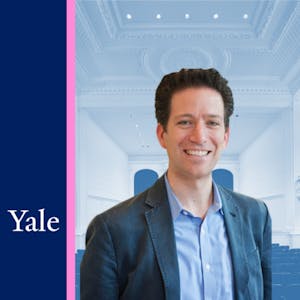Music and Social Action
What is a musician’s response to the condition of the world? Do musicians have an obligation and an opportunity to serve the needs of the world with their musicianship?At a time of crisis for the classical music profession, with a changing commercial landscape, a shrinking audience base, and a contraction in the number of professional orchestras, how does a young musician construct a career today? Are we looking at a dying art form or a moment of reinvigoration?
In this course we will develop a response to these questions, and we will explore the notion that the classical musician, the artist, is an important public figure with a critical role to play in society.
The course will include inquiry into a set of ideas in philosophy of aesthetics; a discussion about freedom, civil society, and ways that art can play a role in readying people for democracy; discussion on philosophy of education as it relates to the question of positive social change; and an exploration of musical and artistic initiatives that have been particularly focused on a positive social impact.
Guiding questions for this course inquiry will include:
- How can classical music effect social change?
- How has music made positive change in communities around the globe?
- What can the field of classical music learn from other movements for social change?
- How have educators and philosophers thought about the arts and their connection to daily contemporary life?
Each class will explore one critical question through lectures, discussions, interviews, or documentaries.
None
Syllabus
Syllabus - What you will learn from this course
Week 1
Welcome to Music and Social Action
Week 2
What is Art and How Do We Experience It?
Week 3
Democracy and the Arts, Part 1
Week 4
Democracy and the Arts, Part II
Week 5
Arts and Urban Renewal
Week 6
20th Century Artists and Social Commitment
Week 7
21st Century Artists and Social Commitment
Week 8
Creating Social Action
Week 9
Final Reflection
FAQ
When will I have access to the lectures and assignments?
Access to lectures and assignments depends on your type of enrollment. If you take a course in audit mode, you will be able to see most course materials for free. To access graded assignments and to earn a Certificate, you will need to purchase the Certificate experience, during or after your audit. If you don't see the audit option:
What will I get if I purchase the Certificate?
When you purchase a Certificate you get access to all course materials, including graded assignments. Upon completing the course, your electronic Certificate will be added to your Accomplishments page - from there, you can print your Certificate or add it to your LinkedIn profile. If you only want to read and view the course content, you can audit the course for free.
Is financial aid available?
Yes. In select learning programs, you can apply for financial aid or a scholarship if you can’t afford the enrollment fee. If fin aid or scholarship is available for your learning program selection, you’ll find a link to apply on the description page.
Reviews
I thought the course was great!. I enjoyed all the lectures and videos, and hope to meet professor Sebastian personally some day.
This was a truly fascinating course which introduced me to interesting and valuable readings while developing my own academic and activist practice!
Very insightful course on music (not that much on specifically music, rather broadly all branches of art) can be used in practice of social action. Compelling professor.
This course was so informative and insightful. I have thoroughly enjoyed the lectures and the readings and look forward to doing further research on the subject.
